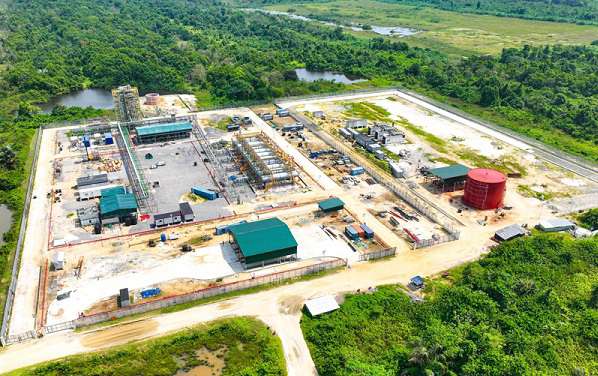Business
Nigeria breaks 50-year jinx as Tinubu sets to open $400m Otakikpo crude export terminal

President Bola Tinubu will on October 8 commission the $400 million Otakikpo Onshore Crude Oil Export Terminal in Rivers State, Nigeria’s first new crude export facility in more than half a century.
The terminal, located in Ikuru Town, Andoni Local Government Area, was developed by Green Energy International Limited (GEIL), operators of the Otakikpo field in OML 11. It is also the first wholly indigenous onshore terminal to be built in the country since the Forcados Terminal was launched in 1971.
The inauguration will be attended by key government officials and stakeholders, including Minister of State for Petroleum (Oil), Senator Heineken Lokpobiri, Rivers State Governor Siminalayi Fubara, and industry leaders across the oil and gas value chain.
In a statement issued on Thursday, GEIL’s Executive Director of Legal and Corporate Services, Olusegun Ilori, said the project reflects Tinubu’s agenda to expand output and tackle crude evacuation bottlenecks that have hindered production for years.
“This terminal is strategic national infrastructure that will cut costs for producers while helping the country achieve higher output,” Ilori noted.
With an initial storage capacity of 750,000 barrels, expandable to three million, and a daily loading capacity of 360,000 barrels, the Otakikpo facility is expected to serve as an evacuation hub for more than 40 stranded oil fields, unlocking millions of barrels of crude that have been inaccessible.
GEIL’s Chairman and Chief Executive, Professor Anthony Adegbulugbe, hailed the terminal as a milestone for Nigeria’s oil industry. “This is more than storage infrastructure; it is a platform that allows dozens of fields to finally contribute to national output and the economy,” he said.
The project comes amid renewed government efforts to rebuild confidence in Nigeria’s oil sector, which has suffered years of declining production, oil theft, pipeline vandalism, and high operating costs.














